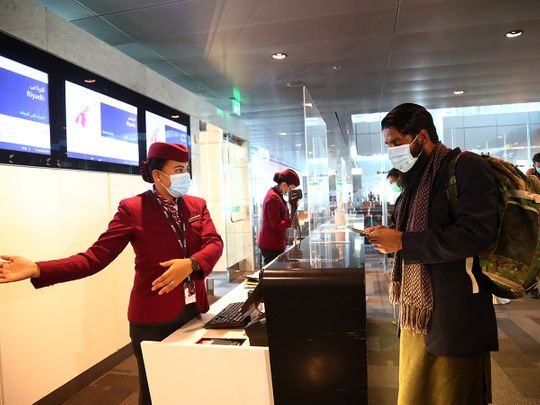
Cairo: Travel restrictions have figured prominently in the measures adopted by the Gulf Cooperation Council (GCC) countries in their painstaking efforts to limit the spread of COVID-19.
Saudi Arabia, Kuwait, Oman, Qatar and Bahrain have enforced varying travel controls, which have mainly taken a toll on the large foreign communities in the five countries. The following explainer puts in focus travel restrictions in place in each country.
SAUDI ARABIA
The largest GCC country with around 34.8 million population, Saudi Arabia is currently enforcing a partial ban on international flights that will be lifted next month. The monarchy plans full resumption of international flights on May 17 after a suspension of more than a year as part of the pandemic-controlled restrictions.
Last September, authorities announced partial lifting of the suspension, allowing certain categories of Saudi nationals and foreigners to travel abroad. They include government employees, the military, diplomats and their families as well as patients whose cases need medical treatment abroad.
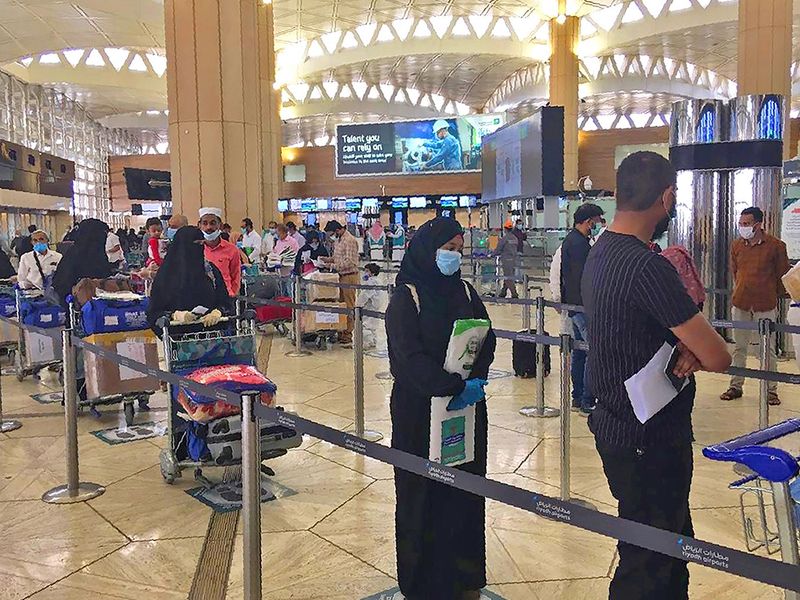
The Saudi national carrier, Saudia, has said that a halt to international flights will be lifted as of 1am on May 17, but will not apply to the countries with which travel is banned by a state committee tasked with tackling COVID-19 due to the outbreak of the virus.
The 20 countries on the ban list are Argentina, the UAE, France, Germany, the US, Indonesia, India, Japan, Ireland, Italy, Pakistan, Brazil, Portugal, the UK, Turkey, South Africa, Sweden, the Swiss Confederation, Lebanon, and Egypt.
The ban also includes arrivals from other countries who have transited through any of the 20 countries during the 14 days prior to applying to enter Saudi Arabia.
Boarding passes restricted
Earlier this week, Saudi civil aviation authorities directed all airlines operating in the country to restrict the issuance of boarding passes to travellers who are “immunised” or have not been infected by COVID-19.
To determine the traveller’s health condition, the General Authority of Civil Aviation (GACA) has requested the airline companies and the Saudi Data and Artificial Authority (SDAIA) to urgently link data of flights to the COVID-19 smartphone app “Tawakkalna”. The GACA said that “Tawakklana” is mandatory for entering airports and boarding flights in the kingdom.
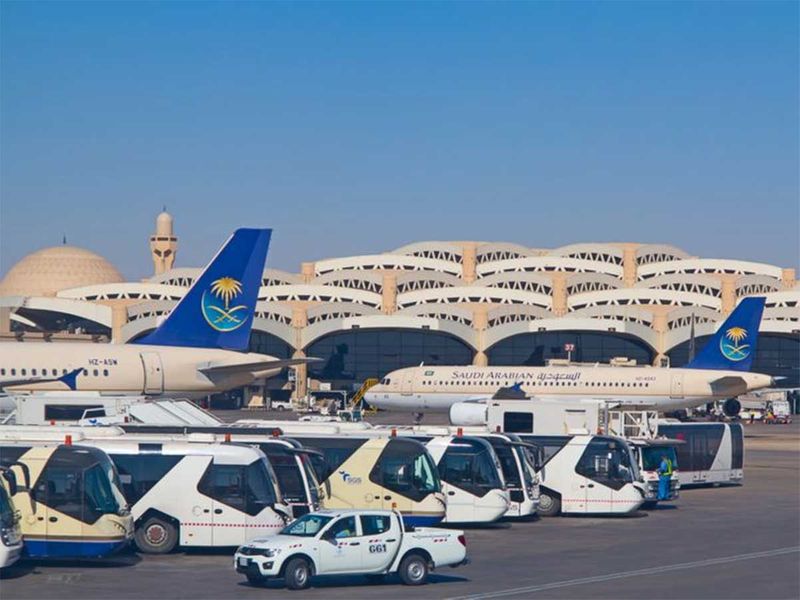
Travellers do not have to show documents related to their health situation as the app is used to prove that the passenger is free of coronavirus.
34.8 m
Saudi population
The GACA has also asked the competent agencies to ensure that the new system would send text messages to travellers to inform them of cancelling their bookings should their health condition is different from the required health eligibility for boarding flights.
All arrivals in Saudi Arabia are, meanwhile, required to show a negative PCR result, a test that must be done at most 72 hours before departure to the kingdom. The new regulations will go into effect as of Thursday, April 29.
KUWAIT
Since last February, Kuwait has enforced a ban on foreigners’ entry as part of efforts to curb to a spike in COVID-19 infections in the country.
Mandatory hotel quarantine
Starting from February 21, Kuwait introduced mandatory seven-day hotel quarantine to all passengers arriving in Kuwait at their expense. Upon the end of the institutional quarantine period, passengers will have to undergo domestic quarantine for seven more days.
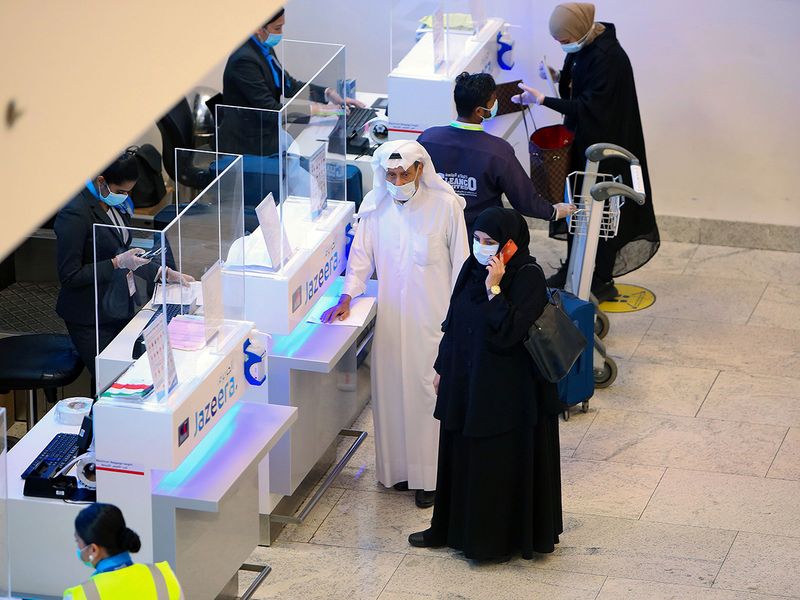
The ban applies to passengers directly coming from India or through a third country unless they have stayed for at least 14 days outside the country, i.e India. Indians in Kuwait are almost 1 million, being one of the largest foreign community in the country
Exempted from the ban, which went into effect on Saturday, April 24, are Kuwaiti citizens, their first-degree relatives (husband, wife and children) and accompanying domestic workers. The ban is the latest coronavirus-related travel restrictions imposed by Kuwait.
Last August, Kuwait announced a temporary ban on flights from dozens of “high-risk” countries, citing concerns over COVID-19 spread. The ban resulted in stranding thousands of expatriates abroad and hard hit travel operators.
OMAN
Starting from April 8, only citizens and foreign residents are allowed to enter Oman until further notice. The restriction was part of a set of measures adopted by Oman including a nighttime curfew during the current Muslim holy month of Ramadan to limit alarming COVID-19 infection rates.
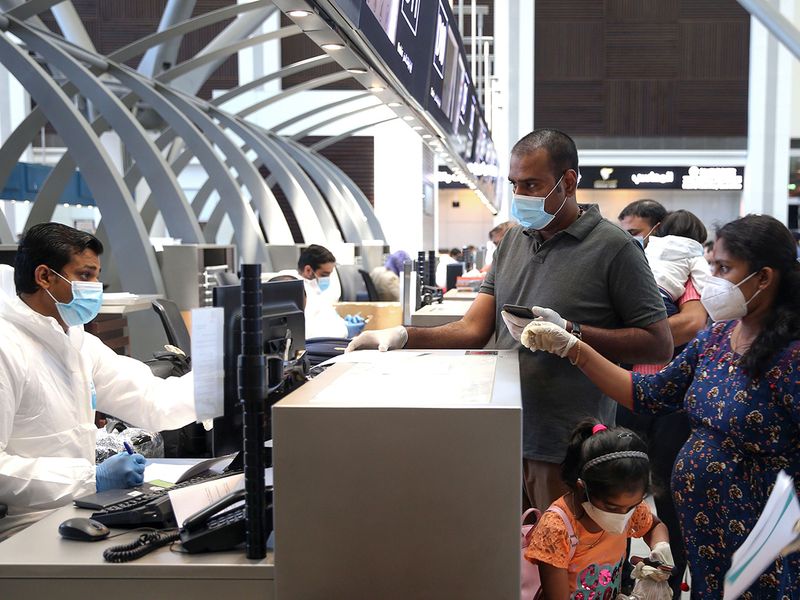
A state committee tasked with confronting COVID-19 also advised Omanis and foreign residents against travelling outside the sultanate unless extremely necessary.
Exempted from the ban are Omani citizens, diplomats, health workers and their families. These groups are required to undergo COVID-19 procedures on arrival in the country. These measures include going into institutional quarantine for at least seven days for non-Omani arrivals who have to book in advance hotels for quarantine. Omani nationals have to sign a pledge to observe home quarantine. Passengers are also required to show a negative PCR test done at most 72 hours before arrival in Oman. They will have to undergo another coronavirus test after the end of the seven-day quarantine.
QATAR
The country adopts the “Green List” policy which is subject to change at any time and is reviewed every two weeks. The list is compiled on the basis of public health indicators in Qatar and around the world.
On the sixth day of quarantine, they will have to head to accredited health care centres for new testing. If the result is positive, the person will be transferred to institutional quarantine. But if the person tests negative, his/her quarantine is complete by the end of the seventh day of isolation and the Ehteraz status will change to green.
Procedures for return from non-Green List countries
As for Qatari citizens and foreign residents returning to Qatar from other countries not on the “Green List”, they have to go into hotel quarantine for one week at their expense. On the sixth day of quarantine, they will undergo coronavirus-detecting testing. If the result is negative, they leave quarantine and their status on the app “Ehteraz will change to green. If the result is positive, the traveller will be transferred to government isolation facilities.
If there are health centres accredited by the Qatari Ministry of Health in countries of departure, showing a coronavirus-free certificate exempts the arrival from undergoing virus testing in Qatar’s arrival points provided that these certificates are issued 48 hours before travel.
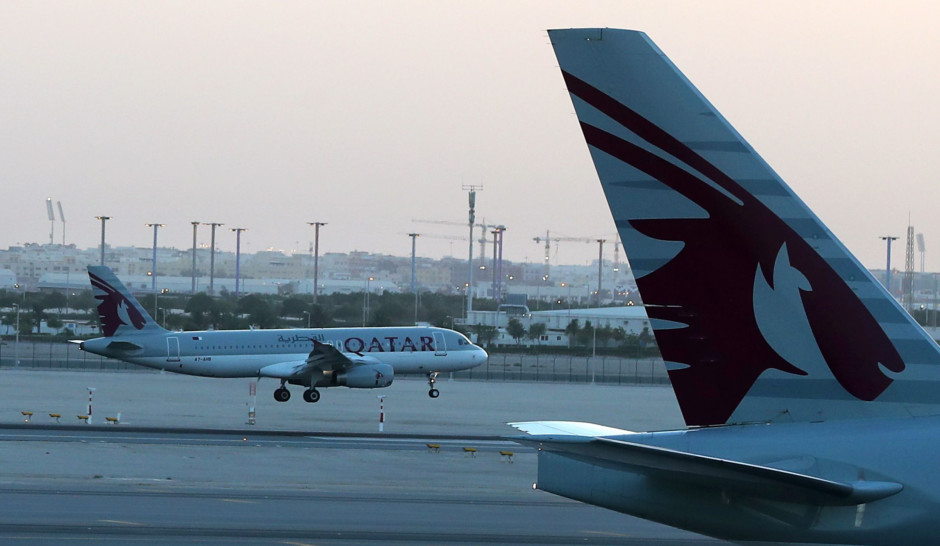
Qatari citizens, their spouses and children, and permanent residency holders can travel outside the country and return at any time, while adhering to all the health procedures in force including bearing the cost of week-long hotel quarantine if the need arises.
Patients receiving treatment abroad at the expense of Qatar and their registered companions, and employees who are dispatched for work assignments are exempted from bearing the cost of the hotel, as the relevant body will cover the costs of the hotel quarantine in case the traveller must be quarantined, according to the Qatari Government Communications Office (GCO).
Arrivals given the jab in Qatar
Passengers who have been fully vaccinated in Qatar are exempted from quarantining if they meet a host of requirements. They include the necessity that 14 days must have passed after receiving the second dose before returning into Qatar; receiving a negative PCR test from the country of departure within 72 hours of their arrival to Qatar, with no further exposure.
The quarantine exemption is valid for six months, starting 14 days after the second dose, and this may be extended in the future following more clinical evidence.
Non-vaccinated children below 16 years of age returning to Qatar with fully vaccinated parents are permitted to go into home quarantine for seven days.
This exemption does not apply to people vaccinated in other countries, according to GCO.
Recovering infected arrivals
Travellers who have recovered from COVID-19 will be exempted from quarantining if they can provide a laboratory-confirmed result proving their recovery and have completed the requirements after the isolation period. This laboratory-approved result must be within six months of the first positive result from a COVID-19 test. Those who have recovered can obtain a form proving their prior infection from their health centres in Qatar before travel.
They have to get a negative PCR test from the country of departure within 72 hours of their arrival in Qatar. Some categories may undergo a COVID-19 test upon arrival at the airport, as determined by the Qatari Ministry of Health. If a recovered person who meets the quarantine exemption requirements develops COVID-19 symptoms within 14 days of coming into contact with an infected person, he/she must isolate themselves and be clinically evaluated.
BAHRAIN
Since February 22, it has been mandatory for all arrivals in Bahrain – citizens and foreigners - to undergo a series of PCR tests costing BD36 at their own expense. The first test is conducted on arrival and the second five days later. The third and final test takes place on the 10th day of arrival in Bahrain.
All arrivals must download the smartphone app “Be Aware Bahrain”. All arrivals are required to self-isolate until the PCR test results are released. Children under the age of six are not required to undergo the PCR tests.

Earlier this week, Bahrain announced health measures for passengers arriving in the kingdom from India, Pakistan and Bangladesh.
The Bahraini National Medical Team Tackling COVID-19 said it has updated procedures for passengers coming from the three countries or transiting them.
Starting from Tuesday, April 27, all travellers arriving in Bahrain from India, Pakistan and Bangladesh will have to show a certificate proving results of coronavirus-detecting PCR testing with the QR code, done 48 hours before departure from the three countries.
Around 450,000 to 500,000 Indians and 120,000 Pakistanis are living in Bahrain. There are about 150,000 Bangladeshis in Bahrain, according to a Bangladeshi embassy estimate.
The new measure applies to those arrivals in addition to the previously announced procedures implemented for all passengers landing at the Bahrain International Airport, the team added.
Entry eligibility
Entry to Bahrain is currently restricted to Bahraini citizens, residents, GCC citizens who don’t need visas, passengers eligible to obtain a visa on arrival, passengers with a valid eVisa, diplomats, military personnel, airline crew, or holders of official, service or UN Passports.
Exempted from arrival measures
They are the cabin crew, diplomatic staff, children under the age of six, and those arriving from medical trips.
Departure restrictions
Access to the Bahrain airport is restricted to passengers and staff. However, exceptions are made for escorts of passengers with reduced mobility or unaccompanied minors. Temperature screening is mandatory at entry points to the terminal and before boarding the aircraft.
Those with a high fever undergo a secondary medical assessment. Passengers must arrive at the airport at least three hours before their flight departure time to allow enough time for additional screening.







